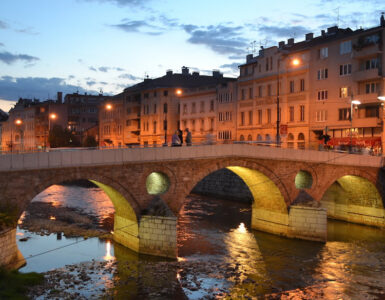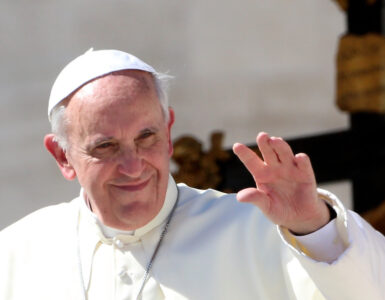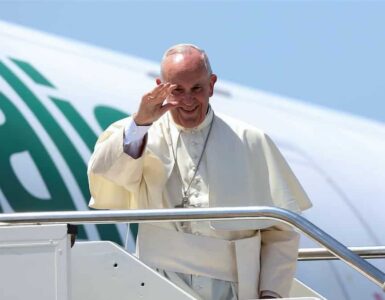Now that Pope Francis has entered Heaven to participate in the eternal banquet of the Paschal Lamb, may we recall some of his important words. As time goes by, I am certain that they will act like fine wine which gladden the heart and empower our souls in our common journey toward the Heavenly Jerusalem.
God’s compassion has always been one of the top subjects which Pope Francis spoke at length about. He used to say:The Lord never tires of forgiving. It is we who tire of asking for forgiveness. Why not ask myself: Am I growing tired of asking forgiveness to God? How much am I letting the moment when I realize that I have sinned be a moment to return to God and seal it with sacramental confession?
Pope Francis was a great critic of the world because many are letting indifference to the plight of their brothers creep into their hearts. He valued compassion so much that he saw it like a small light amid the sea of complete indifference and coldness of the heart. Yes, one act of mercy can change the world and make it a more human face, thus reflecting God’s merciful face. He said: A little bit of mercy makes the world less cold and more just. Am I challenging myself so that each day I let the Holy Spirit use me to bring this light of a merciful God into this world which shudders to death by our indifference?
In this sense, Pope Francis vividly reminds me of what Blessed John Paul I usually referred to as the solidarity of hearts. It is when a chain or a pool of solidarity of hearts is created that our world can be redeemed. Undoubtedly, these hearts are, so to speak, the agents of Christ’s heart which is the very redemption of this world. Pope Bergoglio said: Too often we participate in the globalization of indifference. May we strive instead to live global solidarity. How can we make solidarity towards the suffering ones global? Can we use social media to help create this globality of solidarity?
In his speeches, Pope Francis always talked about being compassionate towards those who hurt us. In this idea I cannot not mention the biblical text which certainly must have had an impact on the Holy Father’s reflection on this subject, namely that taken from the Letter of St Paul. In fact, in that specific text, the Apostles of the Gentiles tells us:
Repay no one evil for evil, but take thought for what is noble in the sight of all. If possible, so far as it depends upon you, live peaceably with all. Beloved, never avenge yourselves, but leave it to the wrath of God; for it is written, "Vengeance is mine, I will repay, says the Lord." No, "if your enemy is hungry, feed him; if he is thirsty, give him drink; for by so doing you will heap burning coals upon his head." Do not be overcome by evil, but overcome evil with good (Rom 12:17-21).
That is why he said: Kindness is firm and persevering intention to always will the good of others, even the unfriendly. Am I ready to will the good of others, specifically those who hurt me so badly?
The virtue of compassion was, for Pope Francis, love for the needy and the suffering, including those who are excluded, and giving space to the young and old people alike to flourish. In a few words, it means helping every person to grow by also preaching to them—peace! He said: We must restore hope to young people, help the old, be open to the future, spread love. Be poor among the poor. We need to include the excluded and preach peace.
Another piece of wisdom which gives me courage in life which Pope Francis used to share, every now and then, is the following one: We will never be disillusioned or lose our way if we are guided by God. In all sincerity of heart I would love to ask myself: Am I letting God showing me the way? Do I really need God’s caring presence in my life? How much am I open to this caring guidance of the Father of fathers?
With other teachings he gave us regarding the Trinity, Christ, the Holy Spirit, the Church, the Sacraments, the Saints, Christian Solidarity and so forth, Pope Francis reminds me that holiness is at the reach of each and everyone of us. In his apostolic letter concerning holiness in todays’ world, Gaudete Et Exultate, he wonderfully gives the example of that mother who gives herself for her family. In his simple and everyday language he wonderfully shows how holiness can be attained by every one, starting from the least of Jesus’ brothers and sisters.
This holiness to which the Lord calls you will grow through small gestures. Here is an example: a woman goes shopping, she meets a neighbour and they begin to speak, and the gossip starts. But she says in her heart: “No, I will not speak badly of anyone”. This is a step forward in holiness. Later, at home, one of her children wants to talk to her about his hopes and dreams, and even though she is tired, she sits down and listens with patience and love. That is another sacrifice that brings holiness. Later she experiences some anxiety, but recalling the love of the Virgin Mary, she takes her rosary and prays with faith. Yet another path of holiness. Later still, she goes out onto the street, encounters a poor person and stops to say a kind word to him. One more step (no. 16).
Holiness through small gestures done with great love reminds us of what St Teresa of Calcutta said: Not all of us can do great things. But we can do small things with great love. Pope Francis showed us that holiness is, in fact, attained by doing small things with great love. His small but loving gestures were a significant reminder that holiness is every person’s existential business.
Dear Pope Francis, thank you because, amid your ups and downs, you were always there giving witness to Christ. Thank you for being his light in our lives. Pray for us from Heaven as we pray for you from this world. Thank you for being Jesus to each and every one of us. We love you.






























